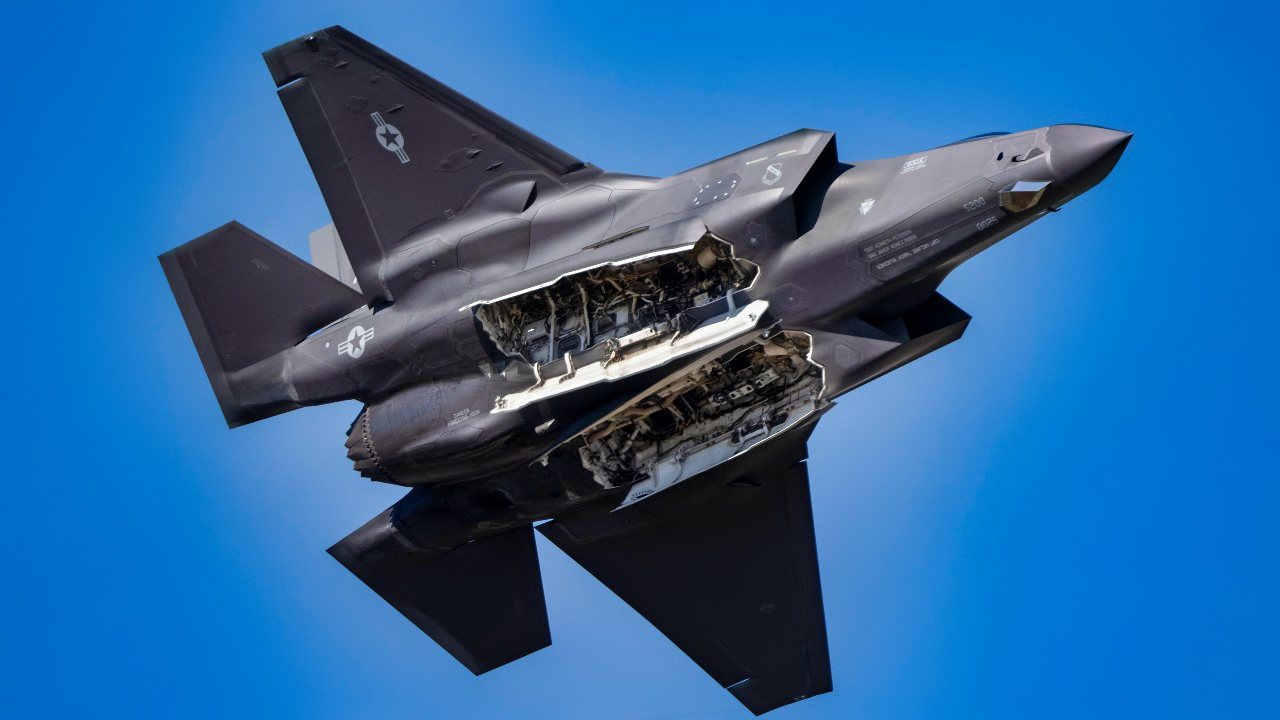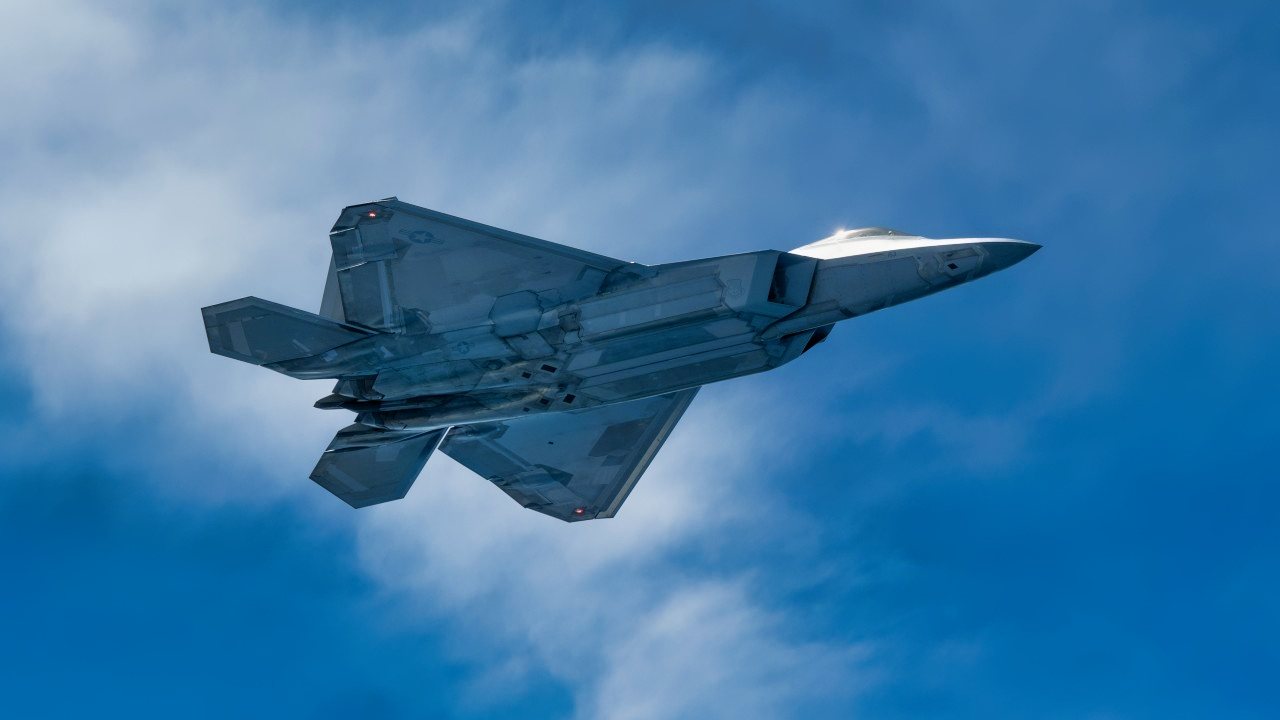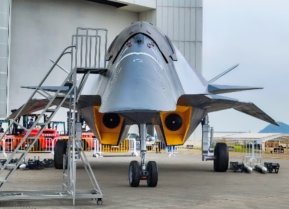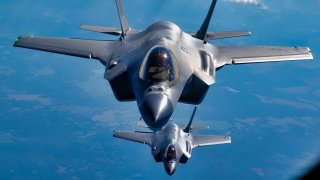F-35 Fighter: The U.S. Air Force's $2,000,000,000,000 Mistake
The F-35 Lightning II, heralded as a fifth-generation marvel, continues to face serious readiness challenges despite $12 billion spent on maintenance between 2018 and 2023.
What You Need to Know: The F-35 Lightning II, heralded as a fifth-generation marvel, continues to face serious readiness challenges despite $12 billion spent on maintenance between 2018 and 2023.

-A recent Government Accountability Office (GAO) report revealed that efforts to raise mission-capable rates by 10% achieved just 2.6%, underscoring ongoing issues with depot maintenance, spare parts shortages, and reliance on contractors.
-With a total projected program cost surpassing $1.5 trillion, the F-35’s sustainment problems risk undermining its effectiveness in a potential great power conflict.
-Critics argue the Pentagon’s decision to prioritize the F-35 over the F-22A Raptor was a costly miscalculation.
The F-35’s Readiness Crisis
America’s F-35 Lightning II fifth-generation multirole fighter is at once a modern marvel and an ongoing annoyance. The reason for the annoyance resides in the fact that, since its inception, the warplane has rarely met its budget or completion goals.
Now that it has become the primary fifth-generation warplane of not only the US military, but several other allied militaries as well, there’s a new set of problems plaguing the F-35 program.
For starters, there doesn’t seem to be enough of these fighters available. And America’s ailing defense industrial base is struggling to meet demand—so much so that there are countless articles circulating about America’s “fighter gap.”
Now for the kicker as it relates to the F-35 program: a recent report from a government watchdog group determined that the F-35 program has failed to meet its readiness goals.
Failing to Win the “War on Readiness”
From 2018-2023, $12 billion US tax dollars were spent on maintaining the complex F-35 program. The Pentagon made the decision in 2023 to increase the readiness of the F-35 force, given all the geopolitical tensions that have risen around the world in the last four years alone.
Under the rubric of the “War on Readiness,” the F-35 Joint Program Office announced their intentions to raise the F-35’s “mission-capable rate by ten percent” within the year.
That year came-and-went. The Government Accountability Office (GAO) found that the readiness rates were increased by a mere 2.6 percent.
Not to worry, the Air Force, always looking for the silver lining in these embarrassing stories, claims that they are better positioned to raise the F-35’s readiness in the future.

But that wasn’t the point of the “War on Readiness.” It wasn’t to eliminate 21 of the top 40 “degraders” of the F-35’s readiness. It was to raise readiness by ten percent (which should be more than doable, considering that the plane has been around for a while and its supply chain is a well-oiled machine by now).
As Audrey Decker of Defense One pointed out in her recent piece on this topic, “The F-35 has long had a rash of sustainment problems, including delays in depot maintenance, spare parts shortages, heavy reliance on contractors, and lack of access to technical data for repairs.”
A Costly Affair
According to the GAO, the total cost of the F-35 program (for the Air Force, Marine Corps, and Navy) is expected to surpass $1.5 trillion. By the time the F-35 program concludes, it will have cost taxpayers a whopping $2 trillion over nearly 30 years.

And what has America gotten? Yes, it’s a technically advanced plane—one of the most advanced in the world. But it is nowhere near as impressive as America’s other fifth-generation warplane, the F-22A Raptor. The former Obama administration ordered the production line for the F-22 prematurely canceled in 2010 in favor of the F-35.
As the meme goes, the Pentagon chose poorly. One cannot help but to wonder how much better things might have been for America’s force readiness if, instead of choosing the F-35 over the F-22 production line, the opposite decision had been made. Because if a great power war erupts anytime soon, the F-35 will be on the frontlines. According to our own military, these birds are not fully prepared for the crucible of great power conflict. That’s disturbing.
Can these negative trends be reversed before a great power conflict erupts?
About the Author:
Brandon J. Weichert, a National Interest national security analyst, is a former Congressional staffer and geopolitical analyst who is a contributor at The Washington Times, the Asia Times, and The-Pipeline. He is the author of Winning Space: How America Remains a Superpower, Biohacked: China’s Race to Control Life, and The Shadow War: Iran’s Quest for Supremacy. His next book, A Disaster of Our Own Making: How the West Lost Ukraine, is available for purchase wherever books are sold. Weichert can be followed via Twitter @WeTheBrandon.
Image Credit: Creative Commons.


